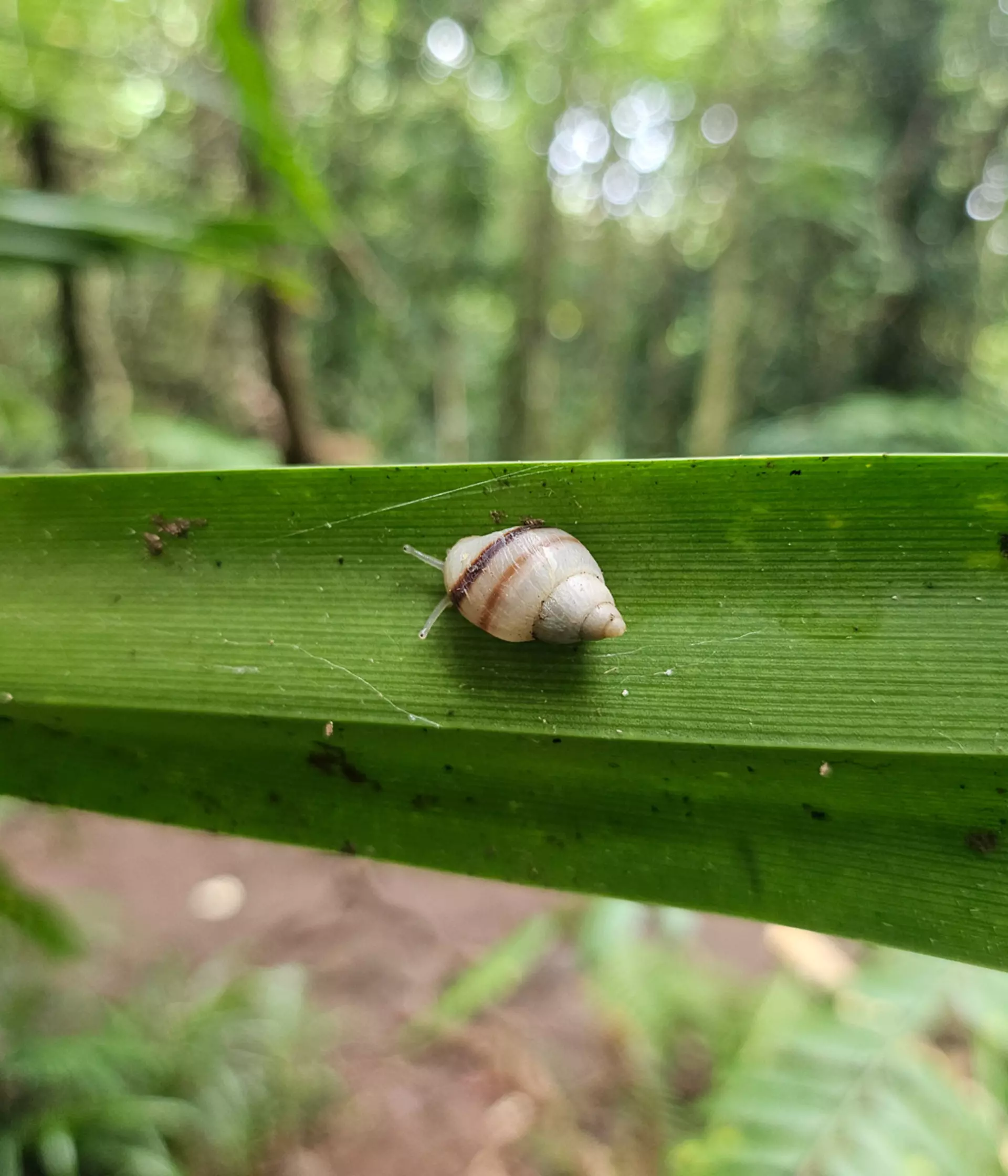Collaboration between zoos sees largest release of extinct-in-the-wild Partula snails in history
A global conservation effort to reintroduce a tiny snail to the wild is celebrating a momentous milestone, as for the first time in 40 years, conservationists have found born-in-the-wild adult Partula tohiveana – meaning the precious molluscs have successfully established themselves in French Polynesia.
During the annual reintroduction of the zoo-bred extinct in the wild and critically endangered snails to their French Polynesian island home – which this year saw zoos around the world restore over 6,000 snails to Moorea – the team, led by our Senior Curator of Invertebrates & Fish and Partula project coordinator, Paul Pearce-Kelly, found unmarked Partula tohiveana: proof that previously reintroduced snails have successfully bred in the area.
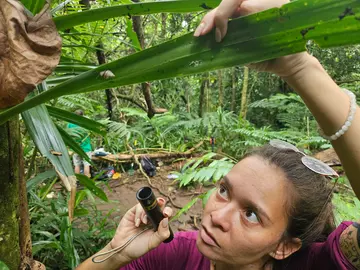
'Extinct' Partula snail species now reestablished
The momentous discovery means Partula tohiveana can now be considered as established – an incredibly rewarding result for 40 years of dedication and collaboration. Conservationists will now begin the process of downlisting the snails from Extinct-in-the-Wild to Critically Endangered on the IUCN’s Red List.
Ten species and sub-species of the tropical snails, reared at London Zoo, Bristol Zoological Society, Detroit Zoological Society, Marwell Wildlife, the Royal Zoological Society of Scotland, Saint Louis Zoo, Sedgwick County Zoo, Woodland Park Zoo and Zoo Schwerin, travelled more than 15,000km to Tahiti at the beginning of September. Before making the two-day journey to the islands of Tahiti, Moorea and Huahine, the incredibly rare snails, which each measure a tiny 1-2cm in length, were individually counted and marked with a dot of yellow UV reflective paint. The ‘snail varnish’ glows under UV torchlight, helping conservationists in the field to spot and monitor the nocturnal snails at night, when they’re most active.
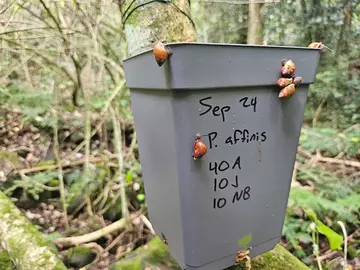
Our Senior Curator of Invertebrates, Paul Pearce-Kelly, who leads the Partula conservation programme, said: “Though little these snails have great cultural, scientific and conservation value. Partula snails have always been part of Polynesia’s rich cultural heritage and play an important role in the ecological health of their forest habitats. They’ve also been studied for over a century for the insights they give into how species evolve in isolated environments. Most recently, they’re providing a valuable conservation model for helping hundreds of endangered island species.”
“This collaborative conservation effort is playing a crucial role in saving these species from extinction. It’s a powerful example of how conservation zoos can combat biodiversity loss. At a time when nature faces unprecedented challenges, these small snails are a symbol of hope for global wildlife.”
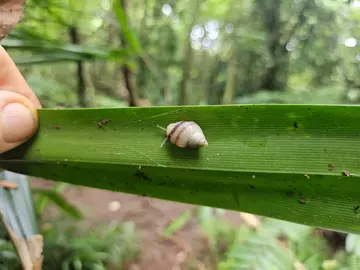
Partula snails - also known as Polynesian tree snails - eat decaying plant tissue and fungi, so play an important role in maintaining forest health. Returning these rare snails back to the wild helps to restore the ecological balance in these islands.
Conservation zoos are working with the French Polynesian Government’s Direction de l’environnement, to save Partula snails from extinction. In the 1980s and early 1990s, these snails faced a critical threat after the invasive rosy wolf snail (Euglandina rosea) was introduced to control the African giant land snail (Lissachatina fulica). Unfortunately, the predatory species targeted the native snails instead, leading to the extinction or near-extinction of many Partula species across the region.
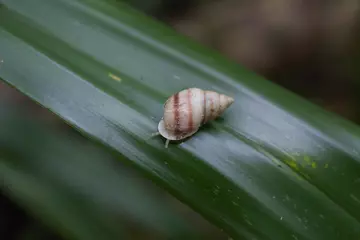
In the early 1990s, the last remaining individuals of several Partula species were rescued by us together with Edinburgh Zoo, launching an international conservation breeding programme. This collaboration between 15 zoos cares for 15 species and subspecies, most of which are classified by IUCN as Extinct-in-the-Wild. These rescued snails, along with those already being studied at universities in the UK and North America, became the foundation for reintroducing the species back onto their native island homes.
Paul said: “After decades of caring for these species in conservation zoos and working with the Direction de l’environnement to prepare the islands, we started reintroducing Partula snails back into their lowland tropical forests almost 10 years ago. Since then, we’ve reintroduced over 30,000 snails, including 10 extinct-in-the-wild species and subspecies, with this year’s release being the largest so far, thanks to our international team and collaborators, including mollusc specialist Dr. Justin Gerlach of Peterhouse, University of Cambridge.”
Our coordination of the Partula snail reintroduction project is made possible due to funding from supporters including the Players of the People’s Postcode Lottery, who have enabled London Zoo to continue bringing species back from the brink of extinction.
